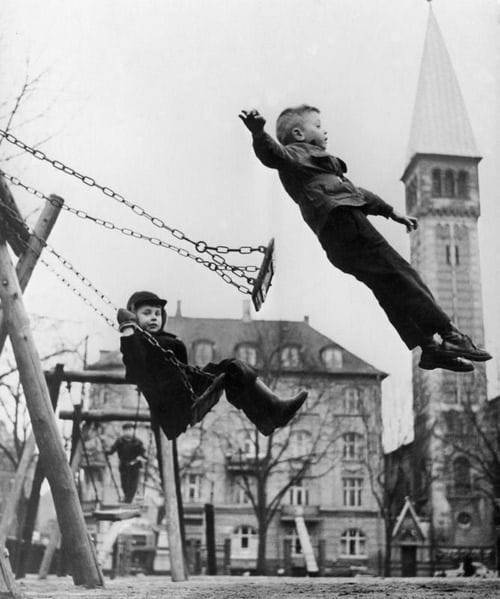#direct experience
The biggest benefit of creative movement practice is direct experience. When people experience physically and fully, they discover something greater than themselves. Direct experience sounds like a simple thing. Practically, it is on the contrary, it’s exceptionally rare. Life has its strange ways of educating us to turn our back on experience and move towards efficiency. We specify how to move, what we like to move and whereabout. This specificity is like saying to new movements “you have nothing to offer me”.
It is similar to spoken word. When babies and kids hear new languages they get curious and want to understand it. Serious adults, hear words that are different than their mother tongue and think “there is nothing there for me because I don’t understand it”.
Philosopher Kierkegaard argued that most humans live in the realm of ‘Human Concern’. This realm moves between representations of past, present and future. In between temporal considerations. “I came from X so if I do Y I will arrive to Z”. But X,Y and Z describe only a network of abstract ideas that point towards a representation of reality. A system of values based on disconnection, speculation and comparison. These temporal considerations lead to life lived in the eyes and the head. The realm of human concern is the opposite of direct experience. Direct experience is connected to the only expression that is unequivocally original, the expression of change.
Change is not a set of premeditated projects. True expression is discovered through what lies outside of us.
What is outside the realm of concern and the temporal? Meaningful discovery. The physical experiences that stay beyond the moment of their happening. They accompany us “timelessly” despite our inability to define what exactly makes them so special.
We don’t cage ourselves from meaningful discovery in a single day, we get habitually caged, gradually and slowly. Step by step we stop moving and stop taking risks. We stop taking leaps of faith.
Movement practice should be a leap of faith. To consciously become without trying to achieve. Leaping and moving towards what’s outside. Relearning that we don’t know much more than what we know.Movement Archery
Post link
ways to reclaim your body:
- shave your head or cut your hair
- go for a run, run as hard as you can
- get a new piercing or tattoo
- cook a meal from scratch and eat it with no distractions
- swim in your nearest body of water, or take a cold shower or bath
- stretch, do a yoga routine and feel every muscle
- wear clothes that you like, doesnt matter what it looks like
- avoid mirrors, your body doesnt need to look a certain way to be valuable
- hold someone close, a loved one or a pet or hold yourself tight
- lay down on your bed or on grass, close your eyes and feel yourself sink into the surface deeply
- turn music on loud and dance however feels good
- drink a a big glass of water or as much as you can, feel the discomfort and let it dissipate
- try to meditate, do a body scan in whatever position feels comfortable (or uncomfortable) and pay attention to as fine a detail as possible
- sing or hum or make noise, hear it reflect back at you, feel the way it vibrates your cheeks, your lips, your bones
- drink some hot tea or any other hot beverage, feel its warmth spread down your throat and into your chest
- sit outside, no matter the weather and experience it, the wind, the sun, or the rain on your cheeks and your eyelids
Case 12: Dizang Planting the Fields
Introduction
Scholars plow with the pen, orators plow with the tongue. We patch robed mendicants lazily watch a white ox on open ground, not paying attention to the rootless auspicious grass. How to pass the days?
Case
Dizang asked Xiushan, ‘Where do you come from?’
Xiushan said, 'From the South.’
Dizang said, 'How is Buddhism in the South these days?’
Xiushan said, 'There’s extensive discussion.’
Dizang said, 'How can that compare to me here planting the fields and making rice to eat?’
Xiushan said, 'What can you do about the world?’
Dizang said, 'What do you call the world?’
Verse
Source and explanation variously are all made up;
Passing to ear from mouth, it comes apart.
Planting fields, making rice — ordinary household matters;
Only those who have investigated to the full would know —
Having investigated to the full, you clearly know there’s nothing to seek:
Zifang after all didn’t care to be enfeoffed as a marquis;
Forgetting his state he returned, same as fish and birds,
Washing his feet in the Canglang, the hazy waters of autumn.
- from Book of Serenity: One Hundred Zen Dialogues, translated by Thomas Cleary, 1988.
Not Why, But What
“Not why, but what,
that’s the secret
of Zen.
Not because
butis:
the famous cherry blossom
blossoming.”
- Dick Allen, “Not Why, But What.” Zen Master Poems, 2016.
Not Too Far from the Golden Gate
“Just as a tree understands a tree’s job,
and water understands water’s job,
you will go to hell like an arrow
if you don’t understand your job
is not to explain your situation and condition,
but, like a melon, to just grow and ripen
by yourself. The ocean is full of water.
There are many clouds in the sky.
What is the one pure and clear thing?”
- Dick Allen, “Not Too Far from the Golden Gate.” Zen Master Poems, 2016.

